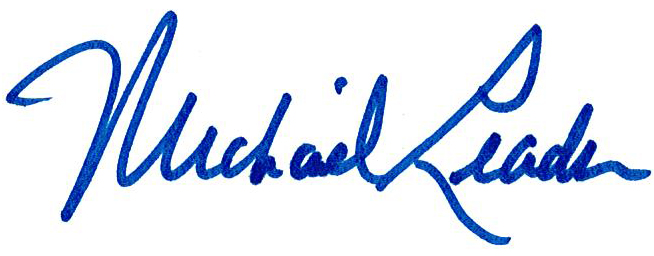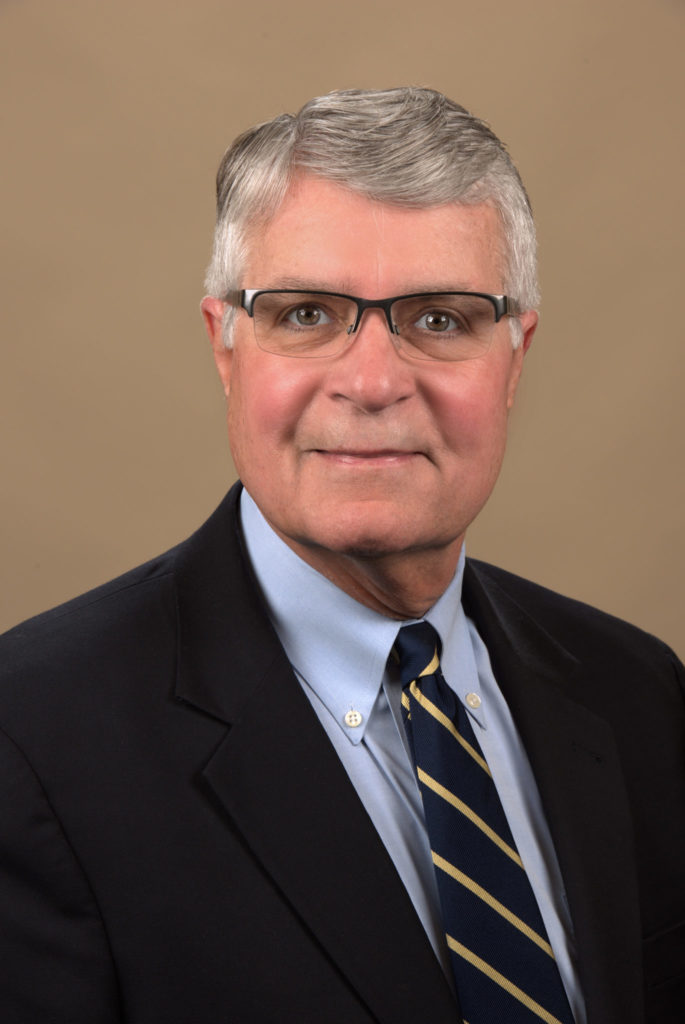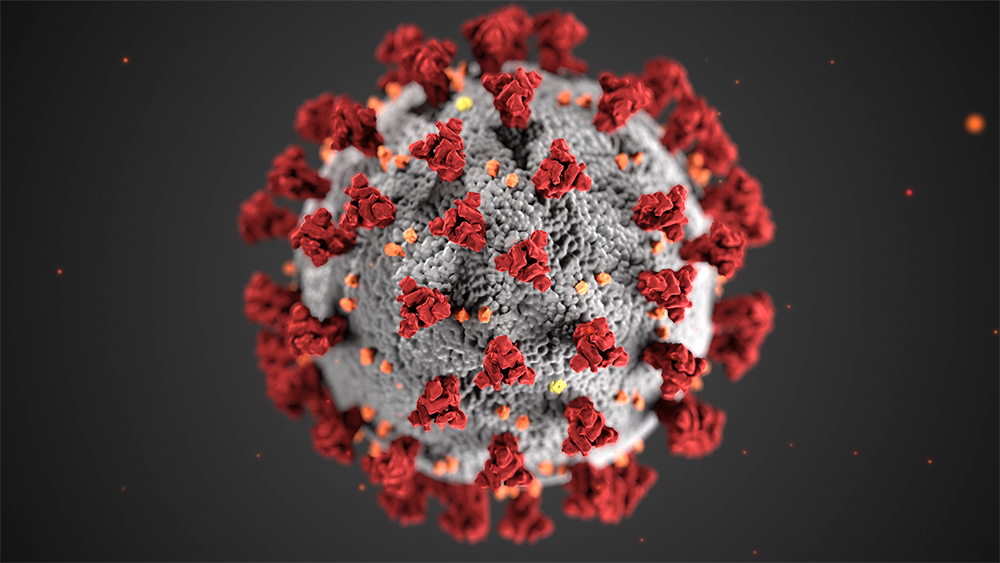SIZE
03/13/20
A Message to Co-workers from Meredith Mills
https://www.youtube.com/watch?v=KksPmZdVtYQ&feature=youtu.be
03/12/20
A message from Co-worker and Chairman & CEO, Michael Leader
I recognize this is an anxious time with the uncertainty in the news about the coronavirus (COVID-19). But, here’s what is certain: our commitment to keeping residents and co-workers safe. While we can’t predict the evolution of the virus, we can continue to conduct safe practices with our staff and campuses and encourage residents and visitors to do the same.
Though heightened awareness of this virus is new, our comprehensive protocols and attentive approach to killing germs and reducing the spread of illness have remained constant and consistent. We have taken more preemptive actions in recent weeks like closing our salad bars and continental breakfast buffets and suspending traditional practices in our spiritual life activities and resident hospital visitations by chaplains. And while we typically welcome all families and guests, at this time we are suspending all non-essential visits to all campuses. We understand unique situations, and essential visits to loved ones on hospice and facing end-of-life conditions will be allowed as long as visitors do not have flu symptoms and have not traveled to a CDC level 2 or 3 country or been exposed to a person who is sick. These visitors will need to complete a screening when entering any of our buildings. These are necessary steps, I believe, for your safety and well-being.
Our management team actively monitors updates and guidance from the state health departments and Centers for Disease Control and Prevention. We have (at least) daily meetings with a special clinical taskforce at our Home Office and frequent communication with each campus’ clinical and management team. Our direct-care staff is trained and charged with monitoring and reporting any resident symptoms, followed immediately by a whole host of protocols if any are detected.
You may ask me: is this a safe place to be versus living in a private residence? Given our proactive measures and continual vigilance, my answer is yes. Then you may ask: would I want my parents to live here? Again, my answer is yes. And in fact, they did. Each of our residents and co-workers’ health matters to me and our company.
I hope this provides peace of mind and earns your confidence that we are committed day by day, hour by hour to protecting our residents and co-workers. Thank you for your trust in our proactive efforts and watchfulness. And thank you for choosing Country Meadows.
Very truly yours,

Michael Leader
03/11/20
Co-worker travel policy
We are currently in an evolving, almost worldwide situation regarding COVID-19 or what has been generally called “coronavirus.” Since this is a new or novel virus strain, it is of great public health concern, and measures are being taken worldwide to control and contain the virus. While most people in the United States currently are at low immediate risk of exposure to this virus there is still much to learn about the unfolding global situation.
For this reason, we at Country Meadows and Ecumenical Retirement Communities want to be proactive in protecting the health and safety of our residents and coworkers. We are putting into place measures to diminish the risk of infection with COVID-19. The World Health Organization (WHO) has advised that this virus may have up to a 14 day incubation period.
Consequently, beginning today, our response will include requiring any coworker who has traveled and is returning from a country under CDC Levels 2 and 3 Travel Health Warning to not come to work until 14 days after returning from his or her trip. This 14 day period will be unpaid, however, the co-worker may use PTO time.
Our goal as always is to assure safety for our residents and coworkers. Please take into consideration any travel plans you have scheduled and evaluate the risk versus the benefit of taking the trip, especially if it is to an area where COVID-19 is spreading. If you do travel wash your hands frequently, avoid touching your face or shaking hands and practice respiratory hygiene, maintain a three-foot distance from sick people, and seek medical care if you have a cough, fever and difficulty breathing.
We will continue to evaluate and modify our response as this situation evolves.
03/12/20
Precautions in place to prevent the spread of influenza and COVID-19
Country Meadows has put precautions and protocols into place to diminish the risk of infection at campuses. The World Health Organization (WHO), has advised the virus may have an incubation period of up to 14 days. To reduce the spread of infection by co-workers we have put the following into place:
- Implemented a travel policy:
- Co-workers who have traveled to or returned from a country under CDC Travel Health Warning may not return to campus for at least 14 days after their return. This includes CDC Travel Warning Levels 2 and 3.
- Co-workers who have been in contact with a person who recently traveled to or returned from one of the above-mentioned countries should refrain from returning to work for 14 days after the contact.
- Mandated any co-workers who are ill to stay home.
- Strongly encourage co-workers to practice increased safe hand-washing techniques. Residents are encouraged to ask a co-worker to wash his/her hands before providing services.
- Require co-workers to use PPE when caring for a sick resident.
- All non-essential visitors are restricted.
- All essential* visitors and co-workers must sign in at the receptionist’s desk. *(Essential visitors include medical personnel, contractors, individuals for pre-admissions meetings and immediate family members visiting for critical or time-sensitive reasons such as hospice-related visits, end-of-life situations, completion of medical authorizations, significant resident issue, etc.).
03/11/20
Measures to stay healthy
https://www.youtube.com/watch?time_continue=13&v=7-lW0s2yJA0&feature=emb_title
- Wash your hands frequently with soap and warm water for 20 seconds. Do so especially after using the bathroom, before eating, after blowing your nose or sneezing. Use hand sanitizer if soap/water is not available or impractical. Rub hands with sanitizer until dry.
- DO NOT TOUCH YOUR FACE especially the “T zone” of eyes, nose, and mouth. This is a direct transmission of germs on your hands to the mucous membranes where viruses can get a hold on you. Don’t moisten your finger on your tongue – a habit that you might be blind to.
- Cough and sneeze into your elbow or upper arm or shoulder. Keeps the germs off your hands that will spread them to everything they touch. Throw tissues away immediately after using them.
- Rethink greetings and avoid the handshake and hug. Use a warm smile and direct eye contact while saying the others name. That says “I see you and I’m protecting us both.”
- Get restorative SLEEP of at least 7-8 hours a night. The sleep-deprived immune system just doesn’t protect you or repair yesterday’s injuries or infectious germs. It’s not a luxury or a waste of time but a necessity.
- Eat healthy foods that contribute to important nutrients. Even adding extra fruits or vegetables like an apple on your way home from work, grapes in your bag for lunch, carrot sticks and red or green peppers to give you that crunch. Grab some nuts, nibble on blueberries. Small additions of healthy food doesn’t hurt.
- Avoid close contact with people especially sick people as best you can. Called “social distancing” it is safest to stay 6 feet away from a person sneezing, coughing and so on. When you have to provide care for that person use appropriate PPE.
- Face masks used as prevention are ineffective. Health care workers will use the right mask. The sick person could use a face mask to prevent the spread to others when they are within 6 feet of another. Sick people may not be able to tolerate a mask especially if they are short of breath.
- Set yourself up for telehealth with CM health insurance. Ask for the papers to set it up so if you need to consult a physician while offices are full of sick people can save you time and exposure to germs.
- Keep up with the best health advice from experts like physicians, virologists, epidemiologists, public health officials from CDC, NIH, State and Local Health Departments. Avoid the rumors and scaremongering on social media. It’s full of misinformation and speculation that doesn’t help us stay well – physically OR emotionally.
- Be aware that criminal types are taking advantage of the situation to gain access to your personal information. As always stay away from email or text links and attachments from people you don’t know or didn’t expect.
- Use ONLY the cleaning products at work that are provided by our suppliers. We have reviewed the data from their testing and are assured the products disinfect surfaces from the coronavirus and others that cause disease. Micro-kill bleach wipes left on the surface for 30 seconds and Clorox health care germicidal spray left wet for 60 seconds will disinfect those surfaces. Wipe high touch surfaces often.
03/11/20
If you begin to feel sick…
At work, you should:
- Call your supervisor who will tell you to go home right away. We will have a small supply of masks so someone could deliver one to your office but avoiding people by going home is best
At home, you should:
-
- Isolate yourself from your family as much as possible. Sleep in a separate space. Use a separate bathroom, if possible.
- Call your doctor if you are in a higher risk group or live with someone at high risk. That includes those older than 60 years (risk increases with age), immune-suppressed because of certain medications, cancer treatment, or those with severe chronic illness.
- Restrict activities outside your home. You may not feel that bad but you are capable of infecting others. Best to rest.
- Drink plenty of fluids.
- Monitor your symptoms. Call your doctor if you rapidly begin to feel worse or fever goes up or if you develop trouble breathing.
- Always call the doctor ahead of arrival so they can give instructions and/or be prepared.
3/11/2020
Have cold-like symptoms?
Consult with a doctor without leaving your house by using a virtual doctor’s appointment.

For co-workers with Country Meadows medical insurance:
Teledoc
There will be a $10 co-pay.
Register online to set up an appointment or call 1-800-835-2362.
For co-workers that don’t have insurance with Country Meadows:
Wellspan
They offer the lowest cost our HR team found at $49.
Register online to set up an appointment.
03/11/20
Wondering about your 401(k)?

In light of recent market volatility, you may have questions about your 401(k). Please contact your 401(k) administrator with any questions:
Country Meadows co-workers
Voya Financial
888-311-9487 or My.voya.com
Ecumenical co-workers
Empower Retirement
877-694-4015 or Participant.empower-retirement.com
Have questions related to COVID-19?

Questions@EcumenicalRetirement.org
Call our “Ask Us” line
855-772-2734
03/11/20
What is coronavirus?
Coronavirus Disease 2019 or COVID-19 is a new respiratory virus first identified in Wuhan, Hubei Province, China. A novel coronavirus is a new coronavirus that has not been previously identified. Coronavirus Disease 2019 is a new disease never seen before in humans. It is different from other human coronaviruses that cause the common cold.
https://www.youtube.com/watch?time_continue=2&v=3AozUnFbYJs&feature=emb_title
03/11/20
Myth busters
- COVID-19 virus can be transmitted in areas with hot and humid climates. From the evidence so far, the COVID-19 virus can be transmitted in ALL AREAS, including areas with hot and humid weather. Regardless of climate, adopt protective measures if you live in, or travel to an area reporting COVID-19. The best way to protect yourself against COVID-19 is by frequently cleaning your hands. By doing this you eliminate viruses that may be on your hands and avoid infection that could occur by then touching your eyes, mouth, and nose.
- Cold weather and snow CANNOT kill the new coronavirus. There is no reason to believe that cold weather can kill new coronavirus or other diseases. The normal human body temperature remains around 36.5°C to 37°C, regardless of the external temperature or weather. The most effective way to protect yourself against the new coronavirus is by frequently cleaning your hands with alcohol-based hand rub or washing them with soap and water.
- Taking a hot bath does not prevent the new coronavirus disease. Taking a hot bath will not prevent you from catching COVID-19. Your normal body temperature remains around 36.5°C to 37°C, regardless of the temperature of your bath or shower. Actually, taking a hot bath with extremely hot water can be harmful, as it can burn you. The best way to protect yourself against COVID-19 is by frequently cleaning your hands. By doing this you eliminate viruses that may be on your hands and avoid infection that could occur by then touching your eyes, mouth, and nose.
- Can spraying alcohol or chlorine all over your body kill the new coronavirus? No. Spraying alcohol or chlorine all over your body will not kill viruses that have already entered your body. Spraying such substances can be harmful to clothes or mucous membranes (i.e. eyes, mouth). Be aware that both alcohol and chlorine can be useful to disinfect surfaces, but they need to be used under appropriate recommendations.
- Can pets at home spread the new coronavirus (2019-nCoV)? At present, there is no evidence that companion animals/pets such as dogs or cats can be infected with the new coronavirus. However, it is always a good idea to wash your hands with soap and water after contact with pets. This protects you against various common bacteria such as E.coli and Salmonella that can pass between pets and humans.
- Do vaccines against pneumonia protect you against the new coronavirus? No. Vaccines against pneumonia, such as pneumococcal vaccine and Haemophilus influenza type B (Hib) vaccine, do not provide protection against the new coronavirus. The virus is so new and different that it needs its own vaccine. Researchers are trying to develop a vaccine against 2019-nCoV. Although these vaccines are not effective against 2019-nCoV, vaccination against respiratory illnesses is highly recommended to protect your health.
- Can regularly rinsing your nose with saline help prevent infection with the new coronavirus? No. There is no evidence that regularly rinsing the nose with saline has protected people from infection with the new coronavirus. There is some limited evidence that regularly rinsing nose with saline can help people recover more quickly from the common cold. However, regularly rinsing the nose has not been shown to prevent respiratory infections.
- Can eating garlic help prevent infection with the new coronavirus? Garlic is a healthy food that may have some antimicrobial properties. However, there is no evidence from the current outbreak that eating garlic has protected people from the new coronavirus.
- Does the new coronavirus affect older people, or are younger people also susceptible? People of all ages can be infected by the new coronavirus (2019-nCoV). Older people, and people with pre-existing medical conditions (such as asthma, diabetes, heart disease) appear to be more vulnerable to becoming severely ill with the virus. WHO advises people of all ages to take steps to protect themselves from the virus, for example by following good hand hygiene and good respiratory hygiene.
- Are antibiotics effective in preventing and treating the new coronavirus? No, antibiotics do not work against viruses, only bacteria. The new coronavirus (2019-nCoV) is a virus and, therefore, antibiotics should not be used as a means of prevention or treatment. However, if you are hospitalized for the 2019-nCoV, you may receive antibiotics because bacterial co-infection is possible.
- Are there any specific medicines to prevent or treat the new coronavirus? To date, there is no specific medicine recommended to prevent or treat the new coronavirus (2019-nCoV). However, those infected with the virus should receive appropriate care to relieve and treat symptoms, and those with severe illness should receive optimized supportive care. Some specific treatments are under investigation and will be tested through clinical trials. WHO is helping to accelerate research and development efforts with a range or partners.
- Allentown: 610-395-7160
- Bethlehem: 610-865-5580
- Forks of Easton: 484-544-3880
- Frederick: 301-228-2249
- Hershey: 717-533-1880
- Mechanicsburg: 717-975-3434
- Nursing & Rehab Center: 610-882-4110
- South Hills of Pittsburgh: 412-257-4581
- Wyomissing: 610-374-3122
- York South: 717-741-5118
- York West: 717-764-1190
- Corporate Office: 800-322-3441


